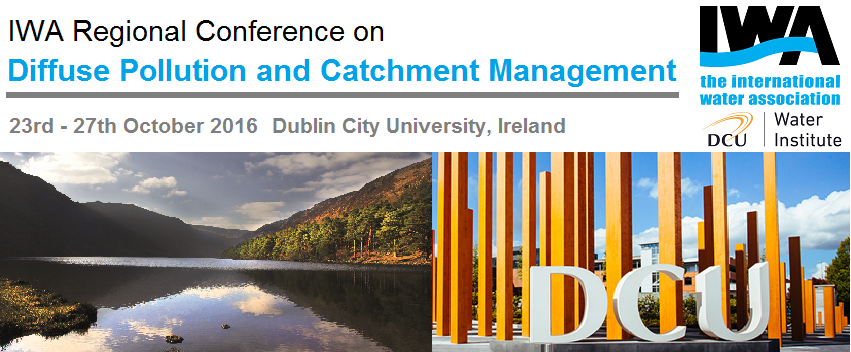Keynote Speakers
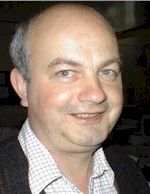
Prof. Michael Bruen
Michael
Bruen is Professor of Environmental
Hydrology at UCD School of Civil Engineering, Director of the UCD Dooge Centre for Water
Resources Research and a member of the UCD Earth Institute. He is a Chartered
Engineer, Associate Editor of the Journal of Hydrology, and Chairman of the
Irish Committee for UNESCO’s IHP and ICID.
Graduated
as an Engineer from UCD in 1975, his subsequent
Ph.D. on catchment modelling was supervised by Jim Dooge and his first post,
outside of UCD, was lecturing at the International Hydrology Postgraduate
Course set up in UCG by Eamon Nash where he spent his early years
lecturing and doing research on hydrological modelling. He helped transfer that
postgraduate programme to the University of Dar es Salaam, in Tanzania, and
coordinated it there for five years. He also worked in Zimbabwe and developed
collaborations in many African countries, e.g. Sudan, Ethiopia and Uganda and
in India and China. He ran a UNESCO hydrology training course in Zimbabwe and
contributed to other courses run by WMO, CEFIGRE and to IUCN projects in Africa.
His main research
interests are in the field of Water Resources Engineering, in particular i)
Computer methods and modelling in Water Resources and Environmental
Engineering; ii) Surface water and groundwater supply and protection from
contamination; iii) Effects of climate change on water resources; iv) Catchment
models and flow forecasting, erosion and
water quality modelling; and v) Applications of multi-criteria decision support
methods (MCA), public participation in environmental decisions and
Geographical Information Systems (GIS) in Water Resources Engineering. He has
been Principal Investigator on a range of EU and nationally funded research
projects and is author of over 160 publications of various types. He has a
special interest in water issues in the developing world.
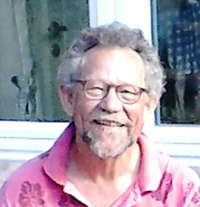
Dr. Dennis Collentine
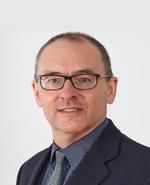
Dr Matthew Crowe
Matthew Crowe was appointed in March 2010 as a Director of the EPA with responsibility for the Office of Communications and Corporate Services and is currently Director of the Office of Evidence and Assessment. Prior to being appointed Director, Matthew had worked within the EPA since 1995 in a variety of roles. Prior to joining the EPA he worked in Vancouver, Canada, for five years, conducting contract research in applied environmental sciences. Matthew holds a B.Sc. and Ph.D. in biochemistry from University College, Dublin.
Dr Karen Daly
Dr. Karen Daly is a Research Officer within the Crops Environment and
Land Use Department of Teagasc at Johnstown Castle Wexford. She holds a degree and MSc. in Chemistry from
Trinity College Dublin, and a Ph.D. in Soil and Catchment Science (Trinity
College, Dublin). Previous positions
held include Environmental Chemist in the Central Laboratories of Dublin City
Council with responsibilities for analysis and reporting of water quality data. Since joining Teagasc, her research interests
have included soil nutrient cycling and the fate and transport of agricultural
nutrients at various scales (plot, field and catchment). Karen has worked as project leader on a
number of large-scale projects addressing
topics such as, diffuse pollution from agricultural sources, catchment
scale models and risk assessment schemes,
as well as process-scale soil nutrient cycling in agricultural
systems. Her interest in soil also extends
to soil spectroscopy, soil quality and soil mapping and her work has included
collaboration among 50 scientists across 6 universities.
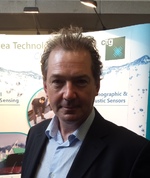
Justin Dunning
Justin Dunning manages sales and marketing operations within Chelsea Technologies Group Ltd, a manufacturer of in-situ sensors and systems serving the Water, Marine Pollution and Process Control markets. He originally worked within the engineering department of Chelsea Instruments Ltd as a Mechanical Engineer and Marine Systems Manager. He has a depth of experience in applying sensor technology to a wide range of markets (Oceanographic Research, Environmental Monitoring, Maritime, Process Engineering, Life Science), and provides the ability of translating user requirements to robust fit-for-purpose sensor solutions.

Dave Foster
Dave is
Director of Regulatory and Natural Resources Policy with responsibility for
policy and legislation in relation to environmental regulation, natural resources (including air, water and
biodiversity) and agri-environment. Dave was
previously Director of Environmental Protection with the Northern Ireland
Environment Agency and has also worked for the Environment Agency for England
and Wales in a variety of operational and policy roles.
He is a
biologist by training, having studied at Birmingham and Leicester Universities.

Dr Hubert Henry
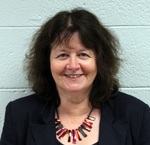
Dr Eleanor Jennings
Dr Eleanor Jennings is director of the Centre for Freshwater and Environmental Studies, Dundalk Institute of Technology. She has extensive research experience in freshwater systems in Ireland and globally. Her main areas of interest are nutrient cycling and modelling of catchment and in-lake processes, including climate change impacts. Her current research topics include dissolved organic carbon in humic systems, assessment of faecal indicator bacteria in sediments, effects of cattle exclusion from streams on water quality, and use of high frequency data to inform near real-time modelling of lake state. She is a member of GLEON (Global Lake Ecological Observatory Network), chair of EU COST ACTION NETLAKE (Networking Lake Observatories in Europe), and coordinator of the upcoming MANTEL (Management of Climatic Extreme Events in Lakes & Reservoirs for the Protection of Ecosystem Services) Innovative Training Network.
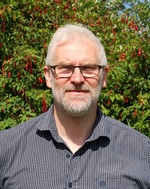
Prof Phil Jordan
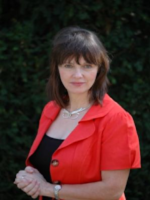
Prof Mary Kelly-Quinn
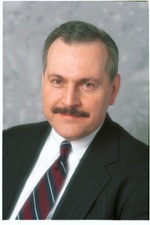
Dr Harry R. Kolar
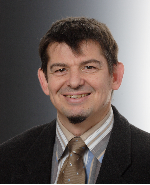
Dr Ralf Kunkel

Anthony McCloy
Anthony is managing Director of McCloy Consulting overseeing offices in Belfast and Dublin. As a Chartered Civil Engineer and a Fellow of Engineers Ireland, he retains a technical ‘hands on’ role providing specialist advice on flood risk, hydrology and sustainable drainage. Working across a range of sectors he has provided his consultancy services to schemes widely ranging in location from the highlands of Scotland to the metropolis of London.
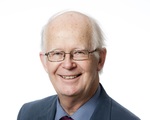
Prof Bruce Misstear
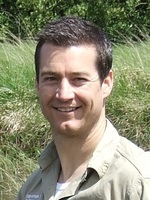
Dr Alec Rolston
Alec Rolston is a research associate at the Centre for Freshwater and Environmental Studies at Dundalk Institute of Technology, Ireland. Alec completed a PhD at the National University of Ireland Maynooth in 2003 and has subsequently undertaken research and environmental management work in both Ireland and Australia. From 2009-2012 Alec worked for the South Australian Government managing research and monitoring activities in a Ramsar-listed large lake and wetland system at the terminus of Australia’s largest river, the Murray. Since returning to Ireland in 2012, Alec has been involved with a number of environmental, water and catchment management projects, including the Tellus Border Project, drinking water source protection assessments for Group Water Schemes, and two EPA Ireland-funded projects: Towards Integrated Water Management (TIMe); and ‘Developing the concept of catchment services for progress towards integrated water management (Extra TIMe)’. Alec’s research interests include integrated catchment and water resources management,community engagement, wetland ecological processes and aquatic invertebrate ecology.
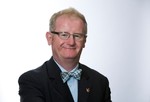
Prof Chris Saint
Chris Saint took up the position of Director at the Centre for Water Management and Reuse in July 2011 moving from SA Water Corporation where he was Research, Development and Innovation Manager and Principal Microbiologist. In April 2016 he was appointed Divisional Dean for Research & Innovation at UniSA. Chris is also Director of the China Australia Centre for Sustainable Urban Development, a joint initiative with Tianjin University, China. He has over 30 year’s postgraduate experience in broad areas of water science including: cyanobacteria (blue-green algae), microbiological detection methodologies (including field/on-line monitoring); taste and odour issues; water treatment; wastewater microbiology and pathogens in catchments. Recent involvement has also included issues regarding wastewater re-use and stormwater capture and harvesting. Chris and his research team have received numerous water research related awards. Chris has published over 150 refereed scientific papers, is Chief Editor of Water Conservation Science & Engineering and an Editor of 2 international microbiology journals. He is also a member of the Australian Research Council College of Experts.
Dr Patricia Torpey
I graduated in 1995 and went on to complete a PhD which was focused on the impact of agriculture on water. I’ve been working with the Department of Agriculture, Food and the Marine (DAFM) for the past 17 years and the majority of that time has been spent contributing to and developing policies that improve farming efficiencies, therefore strengthening the relationship between productive farming and conservation of our water environment. These include the Nitrates Regulations, EIA(Agriculture) Regulations, agri-environmental schemes, freshwater pearl mussel conservation, agri-environmental indicators and river basin planning. I collaborate closely with many national stakeholders including Teagasc, the Environmental Protection Agency, Inland Fisheries Ireland, National Parks and Wildlife Service, a number of government departments and farming organisations; I also represent the DAFM internationally at EU and OECD levels. I recently established a ‘Water Network’ within the DAFM, the aim of which is to guide, co-ordinate and communicate what the DAFM and its Agencies are doing to protect and enhance water. I contribute to monitoring progress under Food Wise 2025, the vision for growth in the agriculture sector in Ireland, to ensure that we are maximising our economic competitiveness, while at the same time ensuring environmental protection.
